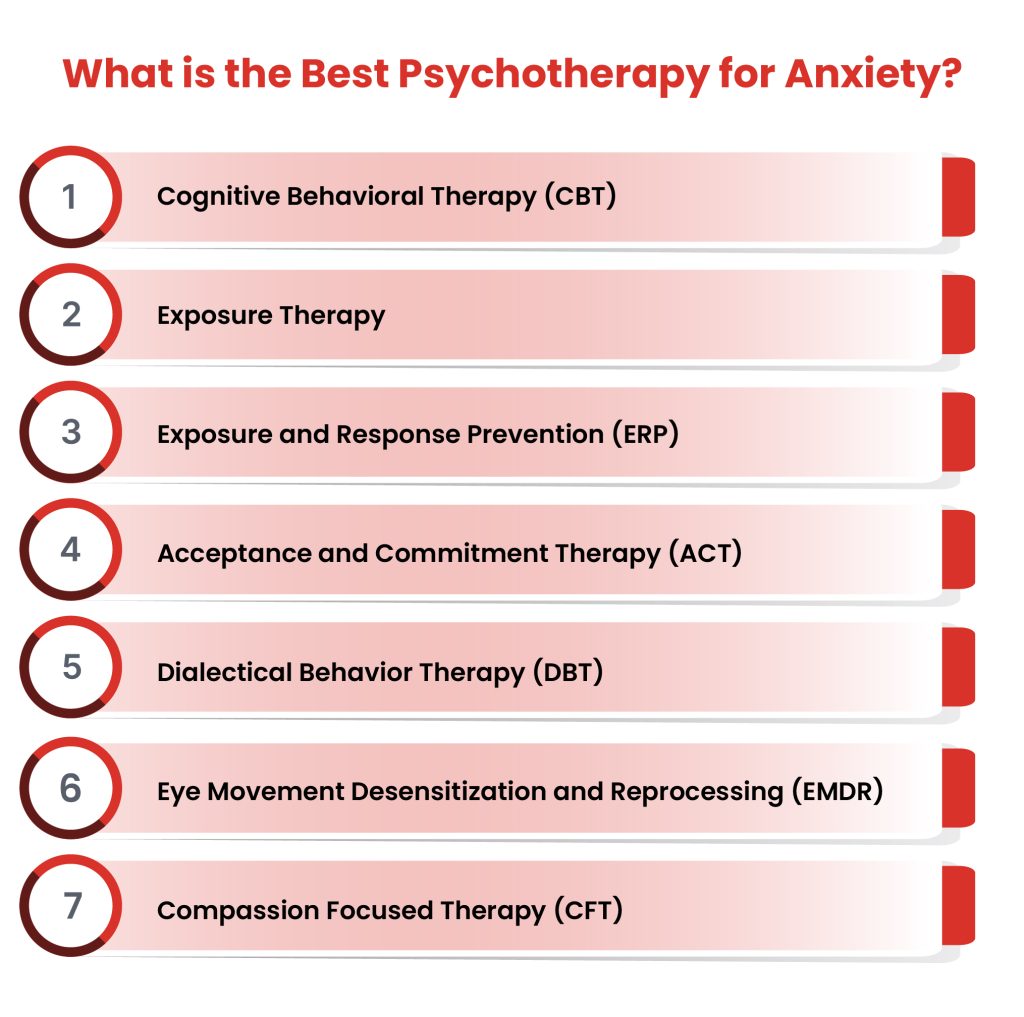
Understanding Psychotherapy Options for Anxiety

Anxiety can often feel overwhelming, and for many, it’s driven by negative thought patterns, deeply ingrained beliefs, or past experiences. The good news is that psychotherapy, or talk therapy, can play a significant role in managing and reducing anxiety. By getting to the root cause of your anxiety, whether it’s false beliefs or trauma, you can begin the process of healing and find lasting relief.
Common Psychotherapy Approaches for Anxiety

If you’re looking for therapy options to address anxiety, several effective techniques have been developed. Here are some common approaches that can help:
1. Cognitive Behavioral Therapy (CBT)
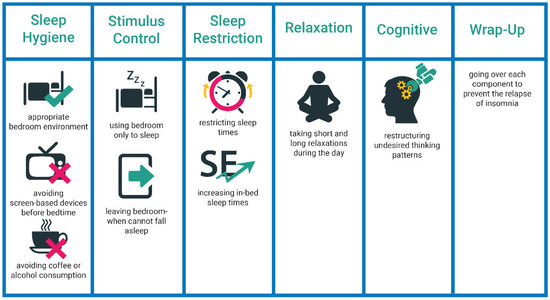
CBT is one of the most well-established, evidence-based therapies for treating anxiety. The core of CBT is about recognizing and changing negative thought patterns that fuel anxiety. It helps you confront irrational thoughts and beliefs, challenging them with more realistic and positive ones.
Studies have consistently shown that CBT is highly effective for treating anxiety disorders like OCD, GAD (Generalized Anxiety Disorder), and acute stress disorder. Typically, CBT is short-term (around 3-5 months), with a focus on the specific anxiety issue you’re facing.
2. Acceptance and Commitment Therapy (ACT)
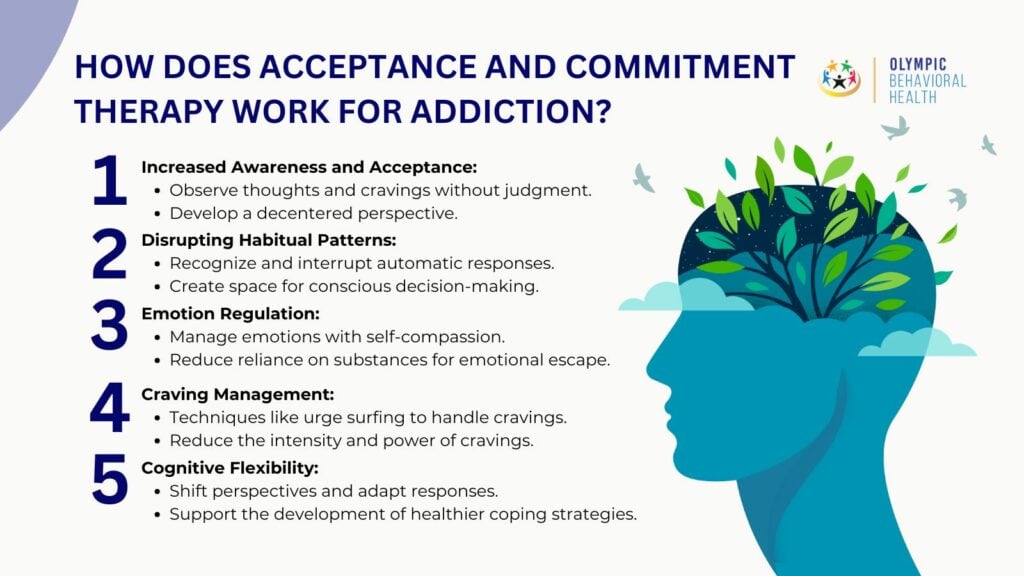
ACT takes a different approach by helping you accept difficult thoughts and feelings rather than trying to avoid or control them. It encourages you to focus on your values and actions despite experiencing anxiety.
Through mindfulness techniques and behavior-changing strategies, ACT promotes psychological flexibility. This therapy can be short-term or extended over time and is often used alongside other therapies.
3. Exposure Therapy
This form of therapy involves gradual exposure to the things or situations that trigger your anxiety. Over time, with controlled exposure, you learn to manage your anxiety and reduce avoidant behaviors. It’s particularly helpful for specific phobias, panic disorder, OCD, and PTSD (Post-Traumatic Stress Disorder).
4. Mindfulness-Based Cognitive Therapy (MBCT)

MBCT combines elements of CBT with mindfulness meditation. It’s designed to help you stay present and manage anxiety without getting overwhelmed by negative thoughts. During MBCT sessions, you’ll learn how to become aware of your thoughts and feelings in a non-judgmental way and use mindfulness techniques to keep calm.
5. Psychodynamic Therapy
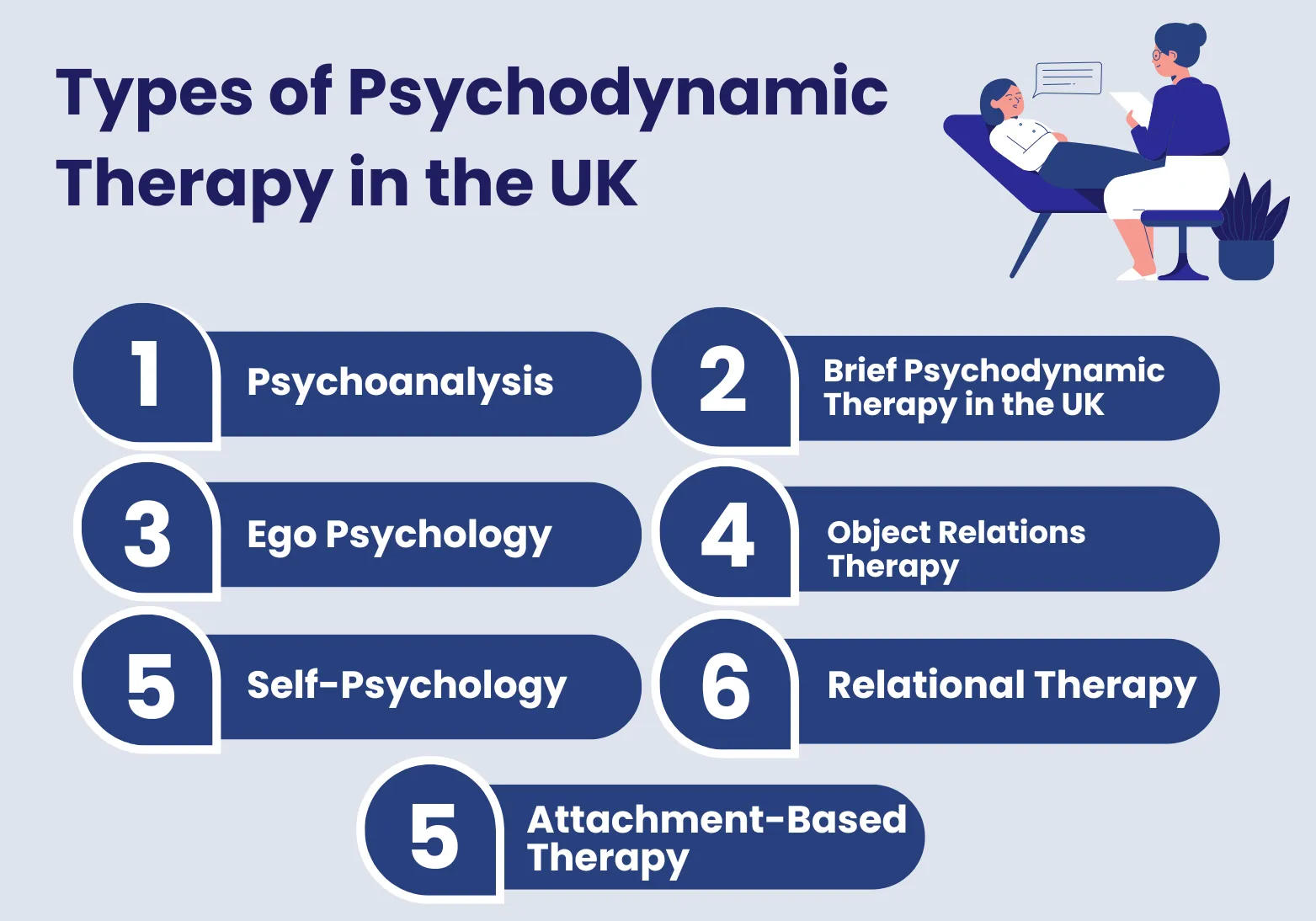
Psychodynamic therapy explores the unconscious forces and past experiences that may contribute to your anxiety. It helps you understand your thoughts, emotions, and behaviors and work through past unresolved issues. This approach can be more in-depth, as it focuses on long-term patterns rather than just the present anxiety.
6. Dialectical Behavior Therapy (DBT)

Originally developed for individuals with borderline personality disorder, DBT is now widely used for treating anxiety. It focuses on emotional regulation, mindfulness, and improving interpersonal relationships. DBT is often a combination of individual therapy and group skills training.
Studies show DBT can improve emotional regulation and mindfulness, especially in reducing anxiety and depression.
7. Interpersonal Psychotherapy (IPT)

IPT focuses on improving relationships and communication skills. While it isn’t specifically designed to treat anxiety, it can be very effective if your anxiety is linked to social interactions, relationship stress, or communication difficulties.
Which Therapy Is Best for You?

There’s no one-size-fits-all approach to therapy. The best therapy for you will depend on the underlying causes of your anxiety. For instance:
- If your anxiety is rooted in past trauma, psychodynamic therapy might be more helpful.
- If your anxiety is related to relationships and social interaction, then IPT could be the best fit.
- For general anxiety and negative thought patterns, CBT and MBCT are typically the most effective.
How Therapy Helps with Anxiety
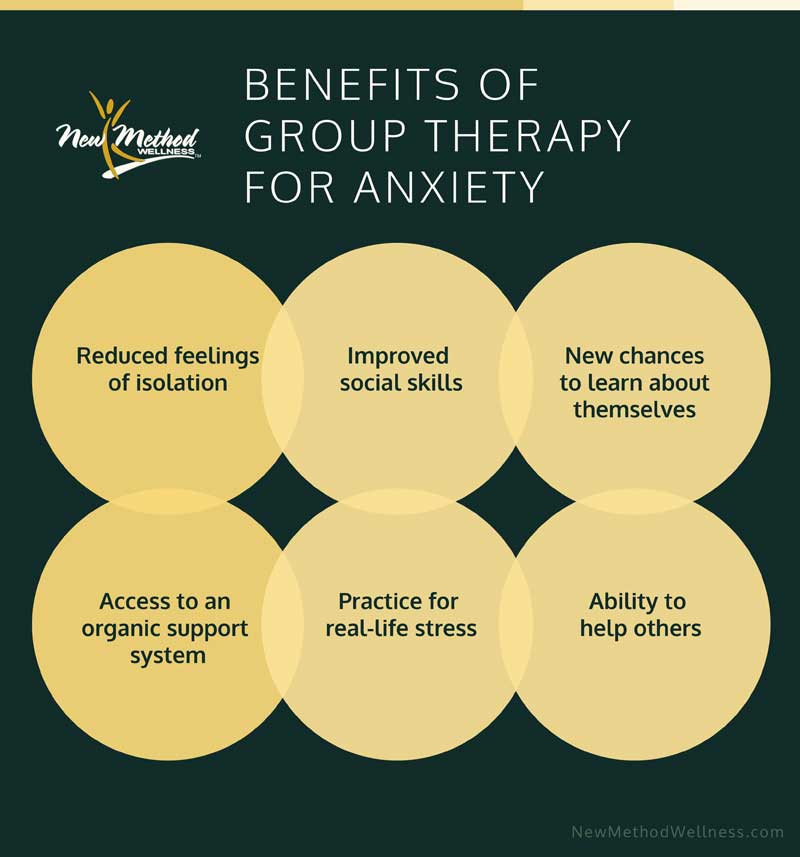
Therapy is highly effective in helping individuals with anxiety because it focuses on:
- Changing negative thought patterns: Learning to recognize and adjust distorted thinking that contributes to anxiety.
- Building healthier coping skills: Developing tools to manage anxiety in the moment and long-term.
- Addressing underlying issues: Identifying the root causes of anxiety, whether it’s trauma, stress, or negative beliefs.
- Providing support and guidance: Therapy offers a safe space to express your feelings and receive expert guidance.
Frequently Asked Questions (FAQs)
1. What is the most effective therapy for anxiety?
Cognitive Behavioral Therapy (CBT) is considered the most effective for treating anxiety, but the best therapy depends on the individual’s specific issues. Some people may benefit from therapies like ACT, DBT, or exposure therapy.
2. How long does therapy for anxiety take?
The duration of therapy depends on the type and severity of your anxiety. For CBT, treatment typically lasts 3-5 months, but longer-term therapies like psychodynamic therapy may take longer.
3. Can therapy completely cure anxiety?
Therapy can help manage and reduce symptoms, but for many, anxiety may not disappear entirely. However, therapy can help you develop skills to cope with anxiety effectively and prevent it from overwhelming your life.
4. Can therapy be combined with medication for anxiety?
Yes, therapy and medication often work well together. Medication can help manage symptoms in the short-term, while therapy addresses the underlying causes and teaches long-term coping strategies.
5. How do I know if I need therapy for my anxiety?
If anxiety is interfering with your daily life, work, or relationships, or if you find yourself unable to manage it on your own, therapy can be a helpful solution. A healthcare professional can guide you on the best treatment options based on your symptoms.
Conclusion
If you’re dealing with anxiety, therapy can be an invaluable tool in managing and understanding your symptoms. With several effective psychotherapy options available, it’s important to explore which approach best suits your needs. Working with a mental health professional can provide you with the support and skills needed to tackle anxiety head-on and improve your quality of life.
